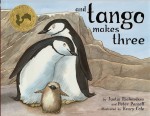 How parties can earn our vote in the General Election
How parties can earn our vote in the General Election
A small cross is a big deal. The ballot is our chance to decide the nation’s direction. Here are five ways political parties can show their commitment to gender equality and an inclusive society – and thus earn our vote in the election.
- Promote women in political leadership. Women deserve more representation than the current 23% of elected MPs and one lone full Cabinet Minister (of 19). Singapore has a treaty obligation to increase the percentage of women MPs. We call on parties to ensure that at least 30% of your candidates are women, and commit to appointing at least 6 women as full Cabinet Ministers in government.
- Build a Care Economy. We ask parties to commit to collective responsibility for children, older people and disabled people – ending society’s reliance on unpaid or underpaid care by women. Changing demographics call for state investment in care infrastructure, comprehensive state support for care work, and increased social spending. This will ensure the dignity of older people, maintain labour participation for a vibrant economy, and empower all to combine paid work and family life. Lightening women’s unpaid labour load may even increase fertility.
- Support free expression and civil society engagement. Blogs and videos should trigger discussion, not court cases. Films and graphic novels on Singapore’s history should be welcomed, not exiled or denied support. Books and songs on families should be savoured, not pulped or silenced. Groups and publications raising concerns should be engaged, not bogged down by onerous regulation. We urge all parties to commit to supporting the democratic exchange of views.
- Stand for inclusion and equality for diverse groups. Parties should make it clear that they support inclusive policies and the rights and welfare of everyone – not just some. End the exclusion of single parents from housing and benefits. Ban racist hiring ads, let uniformed workers wear headscarves if they wish, and outlaw employer discrimination. Repeal 377A and recognise LGBT people as equals. Let all voters know that you work for them, too.
- Campaign respectfully, ethically and inclusively. How a party gains power also shows us how the party will use it. It demeans our elections when parties distort the views of opponents, or supporters belittle candidates for their age or gender. Appealing to divisive sentiments – like anti-migrant or anti-gay prejudice – has harmful and lasting consequences. Singapore deserves parties who win voters over with their visions for progress, not with negative campaigning.








 By Goh Li Sian, Research and Advocacy Coordinator, AWARE
By Goh Li Sian, Research and Advocacy Coordinator, AWARE

 We refer to the report “HSA raises alert over high mercury levels found in 2 cosmetic products” (June 9).
We refer to the report “HSA raises alert over high mercury levels found in 2 cosmetic products” (June 9).